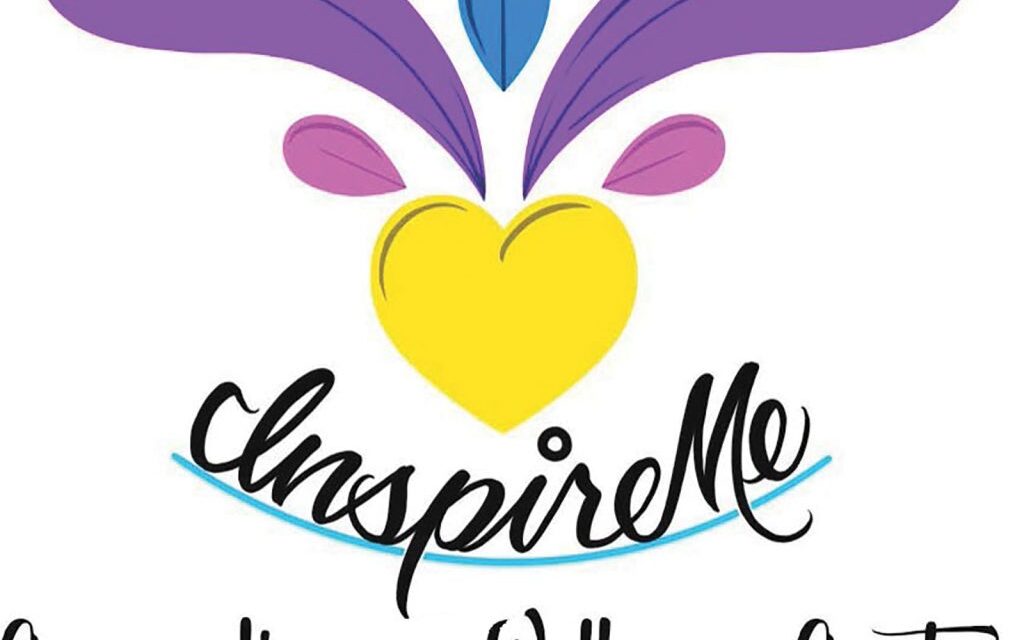By Ivanna Randall, South Kern Sol
On Friday, May 14, 2022, The Inspireme Counseling and Wellness Center hosted The Inaugural Mental Health and Wellness Symposium to encourage students and teens to prioritize their mental health and remind them that they matter.
LaShaka Pleasant-Davis, founder of Charmed and Chosen, a foundation that helps youth face fears they don’t talk about, was the night’s host. Pleasant-Davis was inspired to start her foundation because she saw the youth struggling and wanted to give back to the community.
The first activity she introduced allowed students to write down anything they wanted. Markers were provided to the students, and large blank sheets of paper were taped to the walls. Students got up and wrote down statements such as, “I’m anxious,” “I’m grateful,” and “I’m hungry.”
Pleasant-Davis provided a safe space for the students and validated their feelings, letting them know it’s okay to experience certain emotions.
“Whenever you wake up in the morning after having a bad day or a hard day, renew your mind; yesterday is gone,” said Pleasant-Davis.
Jaron Kemp, a therapist who has experience working in the behavioral health field, outpatient law enforcement field, and is currently working in the substance abuse counseling department at California State University Bakersfield, provided a presentation on falling in love with your mind. Kemp provided students with an affirmation of the night. “My body and my mind are beautifully made.”
Kemp made a comparison between people’s bodies and their minds. When a person’s body is hurt, it sends a signal to their brain, and they can hold the injured area, but when their mind is injured, they can’t hold their mind.
“You can put ice on a hamstring, but you cannot put ice on trauma,” said Kemp.
After this presentation, dinner was served. The panelists did a raffle and went around and introduced themselves to everyone at each table, asking students questions about their year in school and their reason for attending the event.
Tatiana Brown is a therapist who specializes in trauma, a social worker, and a wellness recovery coach who has been offering therapeutic services since 2017. She specializes in family, individual, and couple’s therapy. Brown had the students do an activity where she had them pull their phones out and introduce themselves to each other using their Instagram biographies. She asked the room, “is your Instagram bio an accurate representation of who you are?” Some students said yes, and others said no.
Brown then transitioned to discussing social media and asked the students what the pros and cons of social media were. Some pros that students mentioned were being able to see relatable content, seeing things they enjoy, and connecting with friends. Some cons that students mentioned were comparing themselves to others, pretending to be someone they’re not, and social media affecting self-esteem.
Brown then transitioned into suicide, and suicidal ideation and how to have a plan of action can be the main thing that stops someone from making a permanent decision based on temporary feelings. This plan is composed of three steps.
Step one is to try out a coping skill, step two is to ask who can they reach out to, and step three is when the feelings of suicide pass.
“A coping skill can be anything you do to soothe yourself,” said Brown. “ Reach out to your support system and tell them exactly what you were going through and what you were thinking… The entire point of the action plan is not to kill yourself; that is the goal.”
Lastly, the guest speaker of the night was Pamela Shakur, an author, social worker, and therapist from Bakersfield who currently works and lives in Atlanta, Georgia. Shakur gave the students an activity that required teamwork and communication.
She broke the tables of students into groups and each group was tasked with answering the questions included in a case study, picking a team captain, and having them present the case study and conclusions they came up with to the room.
Each group was able to identify the problem or lack thereof in their case study and present their information to everybody. One group had a case study about a sixteen-year-old girl who hadn’t been managing her hygiene; she was isolating herself away from others and getting little to no sleep at night. The group determined that she was showing signs of depression, and people could support her by reaching out to her and/or attempting to get her to go to therapy.
Shakur informed the students that depression symptoms in a person must be showing for two weeks or more for it to raise eyebrows or be seen as clinical depression.
This event ended with an open-question forum that allowed students to ask specific questions regarding mental health and how to help others and be an ally.
If you or anyone you know is experiencing suicidal ideation or suicidal thoughts, call 800-273-8255 and remember #youmatter.










